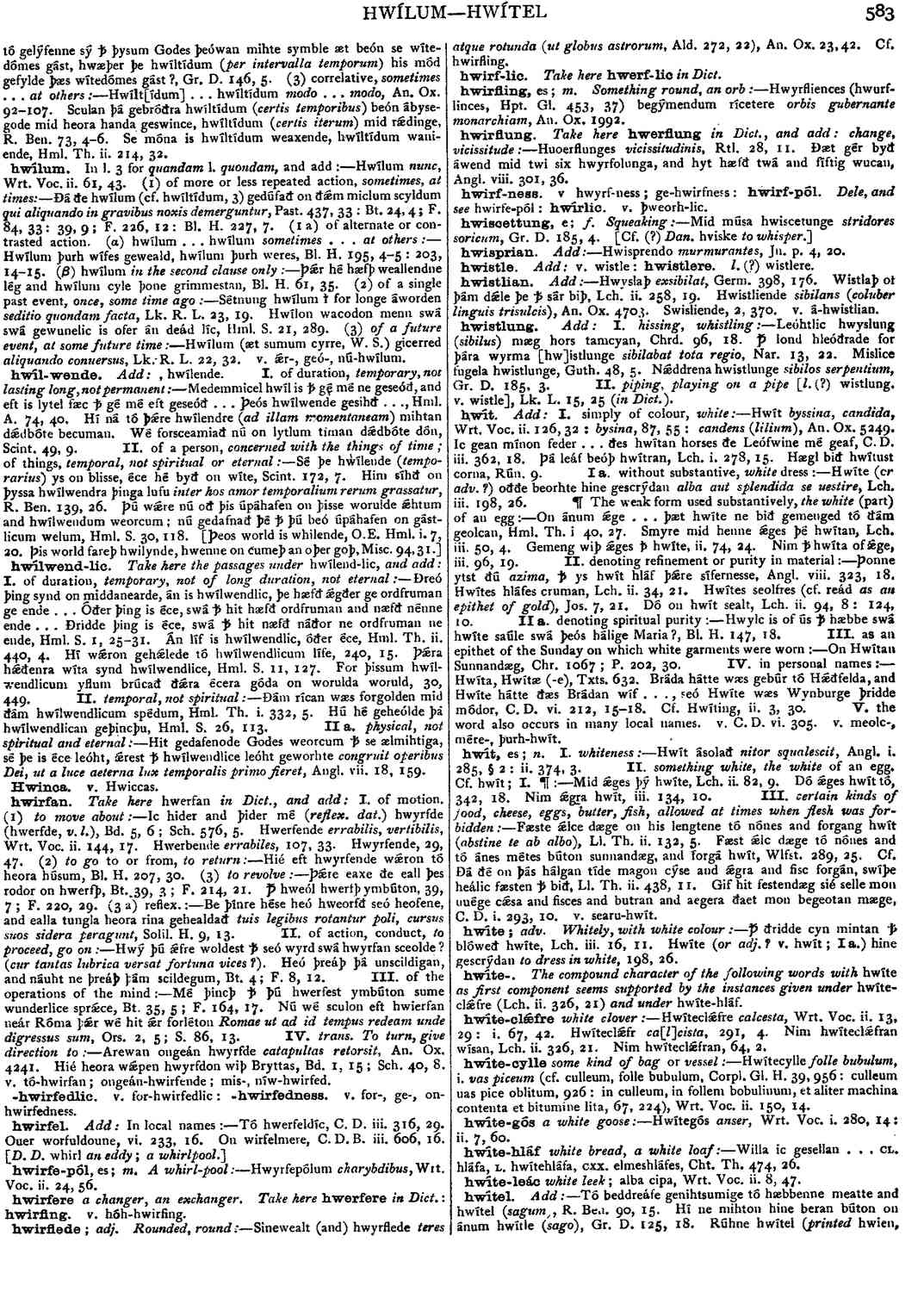hwít
-
Hwít
byssina, Candida, Wrt. Voc. ii. 126, 32 ; bysina, 87, 55 : candens (lilium )
- An. Ox. 5249.
-
Ic gean mínon feder . . . ðes hwítan horses ðe Leófwine mé geaf,
- C. D. iii. 362, 18.
-
Þá leáf beóþ hwítran,
- Lch. i. 278, 15.
-
Hægl bið hwítust corna, Rún. 9. Ia. without substantive, white dress :-- Hwíte (cr adv.?) oððe beorhte bine gescrýdan alba aut splendida se uestire, Lch. iii. 198, 26. ¶ The weak form used substantively,
the white
(part) of an egg :-- On ánum ǽge . . . þæt hwíte ne bið gemenged tó ðám geolcan,- Hml. Th. i 40, 27.
-
Smyre mid henne ǽges þé hwítan,
- Lch. iii. 50, 4.
- Gemeng wiþ ǽges ꝥ hwíte, ii. 74, 24.
- Nim ꝥ hwíta of ǽge, iii. 96, 19.
-
Þonne ytst ðú
azima
, ꝥ ys hwít hláf þǽre sífernesse,- Angl. viii. 323, 18.
-
Hwítes hláfes cruman,
- Lch. ii. 34, 21.
-
Hwítes seolfres (cf. reád
as an epithet of gold
),- Jos. 7, 21.
-
Dó on hwít sealt,
- Lch. ii. 94, 8 : 124, 10.
- II a. denoting spiritual purity :---
-
On Hwítan Sunnandæg,
- Chr. 1067; P. 202; 30.
-
Hwíta, Hwítæ (-e),
- Txts. 632.
-
Bráda hátte wæs gebúr tó Hǽðfelda, and Hwíte hátte ðæs Brádan wíf . . . , seó Hwíte wæs Wynburge þridde módor,
- C. D. vi. 212, 15-18.
- Cf. Hwíting, ii. 3, 30.
Bosworth, Joseph. “hwít.” In An Anglo-Saxon Dictionary Online, edited by Thomas Northcote Toller, Christ Sean, and Ondřej Tichy. Prague: Faculty of Arts, Charles University, 2014. https://bosworthtoller.com/53616.
Checked: 0